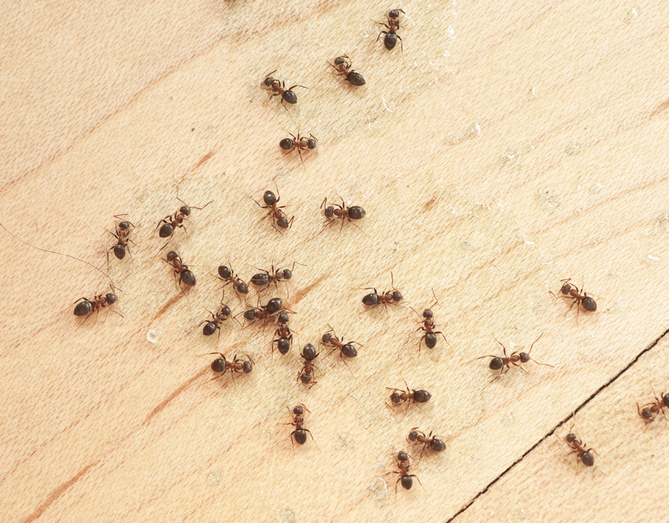The Intricate Life Cycle of Ants
An Ants Life Cycle
The life cycle of an ant comprises four main stages: the egg, larva, pupa, and adult. It begins with the queen laying tiny, oval-shaped eggs. Once hatched, worm-like larvae emerge, relying on worker ants for nourishment. These larvae then transform into pupae, undergoing significant internal changes. Finally, adult ants emerge from the pupal stage, ready to take on roles such as workers, soldiers, or queens in the colony. This cycle showcases the intricate and organized nature of ant colonies.
The Life Cycle of an Ant
Ants are fascinating creatures that have been around for millions of years. Their complex social structures and behaviors have made them a subject of interest for many. In this guide, we’ll delve deep into the life cycle of an ant, and how Orkin can assist you in managing any ant-related issues you might face.
Delving Deeper into the Ant Life Cycle
Ants, despite their small size, have a complex and intriguing life cycle that has captivated scientists and nature enthusiasts for years. Their life-cycle consists of four distinct stages, each of which plays a crucial role in the growth and development of the ant. Let’s take a closer look at each stage and uncover the mysteries of the ant’s life journey.

Save $50
on your first recurring service today with code GET50
Egg Stage
- Beginning of Life – The journey of an ant starts as a tiny, almost microscopic egg. These eggs are the result of the mating between male ants and the queen ant.
- Protection is Key – These eggs are often kept in the deepest, most protected parts of the ant colony. Worker ants tend to these eggs, ensuring they are safe from predators and environmental factors.
- Size and Shape – Ant eggs are oval and are incredibly delicate. Their soft, translucent exterior makes them vulnerable, which is why they require constant care.
Larval Stage
- Emergence from the Egg – Once the egg hatches, it gives rise to a larva. This larva looks nothing like an ant; instead, it resembles a tiny worm or maggot.
- Dependence on Workers – The larva is entirely dependent on worker ants for its survival. It cannot hunt or feed itself. Worker ants bring food to the larva, often regurgitating it to make it digestible for the young one.
- Growth and Molting – As the larva grows, it sheds its skin multiple times. This process, known as molting, allows the larva to grow in size and develop internally.

GET A PERSONALIZED QUOTE
To protect your home from pests, click here for a free pest control estimate. Our Orkin Pros will create a personalized pest treatment plan for your home or business
or Call (866) 249-0292
Pupal Stage
- Transformation Phase – After the larval stage, the ant enters the pupal phase. This stage is akin to the chrysalis stage in butterflies. The ant is seemingly dormant, but inside, it’s undergoing a significant transformation.
- Appearance – The pupa might be enclosed in a cocoon, depending on the ant species. It starts to take on a more recognizable ant shape, with discernible legs, antennae, and body segments.
- Preparation for Adulthood – During this stage, the ant prepares for its final form. It develops its characteristic features and readies itself to take on its role in the colony, be it a worker, soldier, or reproductive ant.
Adult Stage
- Emergence as an Adult – Once the pupal stage is complete, an adult ant emerges. This ant is fully formed and is ready to take on its duties in the colony.
- Roles and Responsibilities – Depending on its type and the needs of the colony, the adult ant might forage for food, tend to the young, protect the colony, or even mate and lay eggs if it’s a queen.
- Lifespan – The lifespan of an ant varies. Worker ants might live for several months, while queen ants can live for many years, laying thousands of eggs throughout their life.
Understanding the life cycle of ants gives us a deeper appreciation for these tiny yet complex creatures. Their structured and organized life stages reflect the intricate workings of nature and remind us of the wonders that the natural world holds.
Orkin’s Expertise in Ant Control
While ants play a crucial role in the ecosystem, they can become a nuisance when they invade our homes. That’s where Orkin steps in. With our specialized products and services tailored for ant control, we ensure that your home remains ant-free.
- Knowledgeable Experts – Our team is trained to understand the biology and behavior of ants, ensuring effective treatment.
- Safe and Effective Solutions – We use products that are not only effective against ants but also safe for your home environment.
- Customized Plans – Every home is different. We offer plans tailored to your specific needs.
Call Orkin for Assistance! If ants are troubling you, don’t wait. Call Orkin today and let our experts handle it.
Remember, ants are a vital part of our ecosystem, but they don’t belong in our homes. With Orkin by your side, you can enjoy an ant-free environment. Call us today and let us take care of your ant problems.
Frequently Asked Questions
How long does an ant live?
While worker ants can live for several months, queen ants can live for many years.
What do ants eat?
Ants are omnivores. They eat a variety of foods, including sweets, meats, and other insects.
Why do ants come into my house?
Ants usually enter homes in search of food and water.
How can I prevent ants from entering my home?
Keep your home clean, especially the kitchen and dining areas. Ensure that food containers are sealed and that any spills are cleaned up immediately.
Are all ants harmful?
No, not all ants are harmful. However, some species, like fire ants, can sting and cause discomfort.
How does Orkin treat ant infestations?
Orkin uses a combination of bait systems, sprays, and preventive measures to treat ant infestations.
Is the treatment safe for my pets?
Yes, Orkin ensures that all treatments are safe for both humans and pets.
How often should I get my home treated for ants?
It depends on the severity of the infestation. However, regular inspections and preventive measures can help keep ants at bay.

FIND YOUR LOCAL BRANCH
To protect your home from pests, click here for a free pest control estimate. Our Orkin Pros will create a personalized pest treatment plan for your home or business
or Call (866) 249-0292

